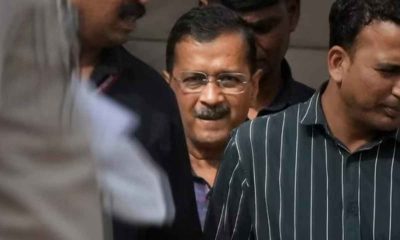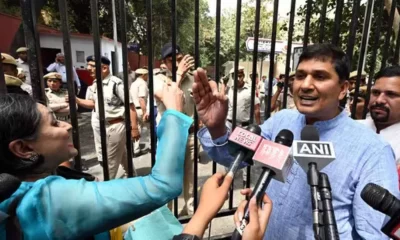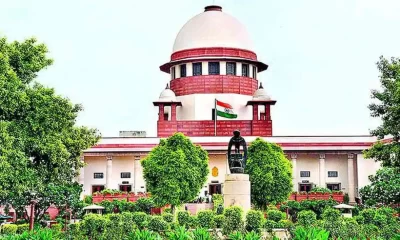India News
Judges upset with Modi govt altering Justice KM Joseph’s seniority, CJI says will take it up
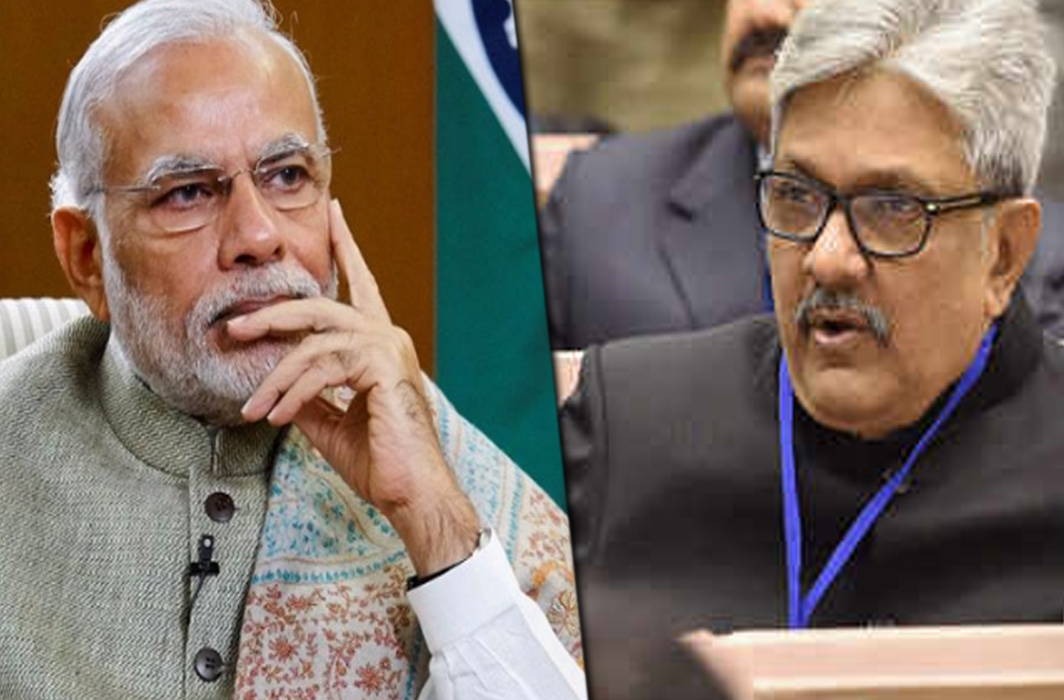
A group of judges met Chief Justice of India (CJI) Dipak Misra today (Monday, Aug 6), to take up call the government’s attempt to alter the seniority of Justice KM Joseph by putting his name at the bottom of the list of judges cleared for elevation to the top court.
The CJI assured the judges that he would take up the matter with the government. The swearing-in is scheduled for tomorrow, August 7.
The government had been reluctant to clear Justice Joseph’a name and his appointment as SC judge was cleared after much back-and-forth in the past eight months. Even while finally clearing his name when the SC Collegium sent it back a second time, the government did what it could against the interests of the Judge and put his name at the bottom of the list of judges approved, after the names of Justices Indira Banerjee and Vineet Saran.
With his name at the bottom of the list in notification for swearing in on Tuesday (August 7), he will be sworn in last. This will not allow him to even head an independent bench in a long while. It is known, though, that Justice Joseph, considering his seniority, date of retirement, and other issues, will never be the Chief Justice of India.
According to tradition – and tradition rules at the Supreme Court – judges lose seniority even if they are sworn in on the same day but hours apart. This had happened during the swearing in of two judges of the Supreme Court, Justices Ruma Pal and YK Sabharwal.
In 2000 both judges were named to the top court and Justice Pal was being sworn in for a six-year stint at the top court, which was time enough for her to be elevated to the post of Chief Justice of India.
However, the communication reached her late and her trip to Delhi was delayed. She was sworn in a few hours after Justice Sabharwal. That delayed communication robbed Justice Pal of the opportunity to be the Chief Justice, despite her being the senior judge of the two.
The issue of Justice KM Joseph’s seniority being affected in this manner was taken up some SC judges, including three from the Supreme Court collegium or panel that recommends appointments, with Chief Justice of India Dipak Misra today.
They were told by the Chief Justice that he would take up their protest with the Centre. The swearing-in takes place tomorrow.
Government sources, however, justified the order that places Justice Joseph last among the three judges to be sworn in on Tuesday, reported NDTV.
Denying the charge, government sources said Justice Joseph was appointed high court judge in October 2004, more than two years after Justice Indira Banerjee and Justice Vineet Sharan (both in February 2002). They argued that in the all-India seniority list of judges, Justice Banerjee is at number 2, Justice Sharan at 3 and Justice Joseph places 39.
Justice Joseph did become Chief Justice before the other two judges, but seniority is decided on the date of appointment as high court judge, not Chief Justice, the government sources contended, according to NDTV.
Countering that argument, sources in judiciary told NDTV “seniority is not the only criteria for elevation to the Supreme Court”, and that’s why the collegium rejected the government’s contention on seniority and stood firm by its recommendation of Justice Joseph.
The Supreme Court collegium named Justice Joseph for elevation in January, but the government sent back his file questioning the choice and pointing to inadequate representation in the top court from other states, especially Kerala. As the collegium reasserted its choice of Justice Joseph, the government was forced to accept it.
The government denies opposition allegations that its objections were linked to Justice Joseph’s order in 2016 scrapping President’s Rule in Uttarakhand, which helped restore the Congress’s government.
India News
Tamannaah Bhatia summoned in illegal IPL streaming app case, to appear before cyber cell on April 29
Actor Tamannaah Bhatia has been summoned for allegedly promoting the viewing of the IPL matches on the Fairplay betting app.

Actor Tamannaah Bhatia has been summoned by the Maharashtra Cyber Wing to appear for questioning for the illegal streaming of the 2023 Indian Premier League on Fairplay App, a sister app of the Mahadev betting app.
On April 29, the actor is scheduled to appear before the Cyber Cell for interrogation.
In the same case, rapper and singer Badshah was questioned earlier. In addition, actor Sanjay Dutt was also summoned in the same case this week on Tuesday, but he has requested an extension of time to appear before the department.
Even though the Fairplay app lacked official broadcasting rights, all of these actors and singers encouraged users to watch the Indian Premier League, which cost official broadcasters a lot of money.
An FIR was filed in September of last year in response to a complaint made by Viacom18, the company that owns the intellectual property rights (IPR) for streaming Indian Premier League games. According to the complaint, Viacom18 lost over Rs 100 crore as a result of the betting app Fair Play platform illegally streaming IPL matches on their platform.
Many celebrities, including Badshah, Sanjay Dutt, and Jacqueline Fernandez, were summoned for questioning after the filing of the FIR. An employee of the betting app was taken into custody in December of 2023.
A platform for betting exchange, FairPlay provides a large selection of sports and entertainment betting for leisure players.
The most popular sport on FairPlay, according to the app’s website, is tennis, football, and cricket.
According to the website, FairPlay streams every sporting event live so that users can watch and win at the same time.
Actors Ranbir Kapoor and Shraddha Kapoor, who had starred in advertisements for the Mahadev betting app, made news last year when the Enforcement Directorate (ED) called them in for interrogation.
2024 Lok Sabha Elections
Mallikarjun Kharge vows to continue politics till his last breath to defeat BJP
The 81-year-old Congress leader was speaking at a election rally in Afzalpur and said that if the people did not vote for the Congress candidate, he would think that he did not have any place in Kalaburagi anymore.

Congress President M Mallikarjun Kharge on Wednesday appealed to the people of Kalaburagi to at least attend his funeral if they thought he worked for them even though they do not wish to vote for Congress in the ongoing Lok Sabha elections.
The 81-year-old Congress leader was speaking at a election rally in Afzalpur and said that if the people did not vote for the Congress candidate, he would think that he did not have any place in Kalaburagi anymore. The Congress President sought an emotional chord with the people of his home district of Kalaburagi, Karnataka
The grand old party has fielded Kharge’s son-in-law Radhakrishna Doddamani from Kalaburagi, against BJP’s sitting MP Umesh Jadhav. Kharge had won the Lok Sabha elections from Kalaburagi in 2009 and 2014, but lost in 2019. He appealed to the voters to vote for Congress but at least come to his funeral if they thought that he had done some work in Kalaburagi. Kharge added that he would continue in politics till his last breath to defeat the BJP and RSS ideology.
The Congress leader said he is born for politics and whether or not he contests the election, he will continue to strive till his last breath to save the Constitution and democracy of the country. He asserted that he will not retire from politics. Kharge said that retirement happens from a position but one should not retire from his/her principles. He said he is born to defeat the ideology of the BJP and RSS and not to surrender before them.
He advised Karnataka Chief Minister Siddaramaiah, who shared the stage with him, to follow his principles. He said he had told Siddaramaiah many times that he may retire as CM or MLA, but he cannot retire from politics till he defeats the ideology of the BJP and RSS.
2024 Lok Sabha Elections
Nitin Gadkari says he’s better now after collapsing at election rally in Maharashtra’s Yavatmal
A disturbing video of the incident – which was unfortunately streamed live on X (formerly Twitter), including by his own account – showed Nitin Gadkari being carried away by those on stage, many of whom rushed to form a shield around the BJP leader to give him, and those treating him, some privacy.
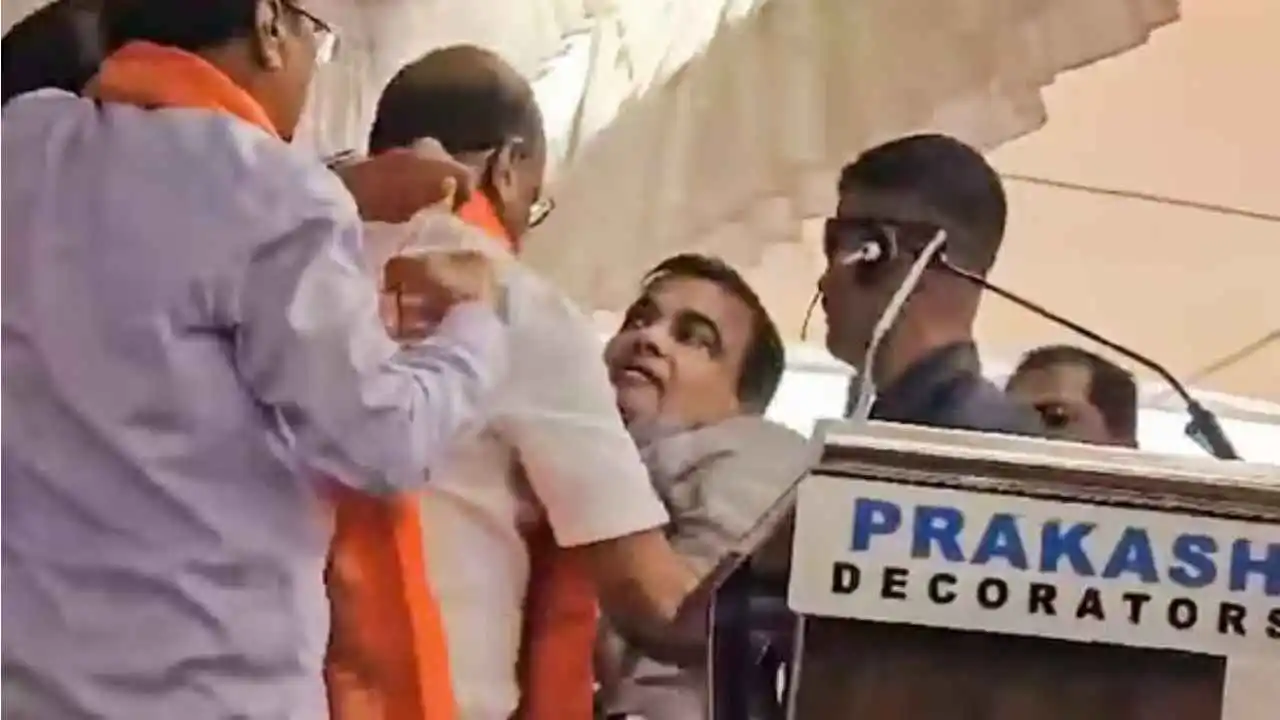
Union Road Transport and Highways Minister Nitin Gadkari collapsed while speaking at an election rally in Maharashtra’s Yavatmal on Wednesday afternoon. Fortunately, the senior Bharatiya Janata Party leader received prompt treatment and was able, after a brief pause, to get back up on stage and continue his speech.
A disturbing video of the incident – which was unfortunately streamed live on X (formerly Twitter), including by his own account – showed Nitin Gadkari being carried away by those on stage, many of whom rushed to form a shield around the BJP leader to give him, and those treating him, some privacy.
Nitin Gadkari took to X and informed that he felt uncomfortable due to the heat during the rally in Pusad, Maharashtra. But now he is completely healthy and is leaving for Varud to attend the next meeting. He thanked his supporters and well wishers for their love and good wishes.
Gadkari, who fought the elections in the first phase of voting as BJP’s candidate from Nagpur Lok Sabha seat, was campaigning for Eknath Shinde-led Shiv Sena leader Rajashree Patil in Yavatmal’s Pusad. Addressing the rally, the union minister said, he was confident that the people of Yavatmal district, which has a constant tendency towards development, will give victory to the BJP-Maha alliance, which believes in all-round development.
Gadkari posted on X that as the nation moves towards a developed India, under the leadership of Prime Minister Narendra Modi, significant work has been done in the last 10 years in the areas of roads and highways as well as health, education and other sectors across the country. He said many schemes of the central government were successfully extended to the rural areas. Due to this, along with the city, the people of the rural areas are also able to benefit from many important facilities.
The Yavatmal constituency along with Akola, Buldhana, Amravati, Hingoli, Wardha, Parbhani and Nanded in Maharashtra are scheduled to vote in the second phase of the Lok Sabha election on April 26.
-
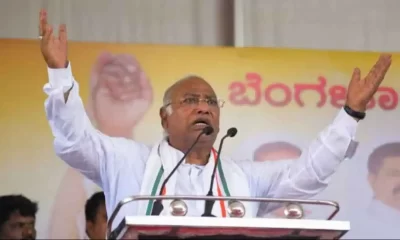
 2024 Lok Sabha Elections16 hours ago
2024 Lok Sabha Elections16 hours agoMallikarjun Kharge vows to continue politics till his last breath to defeat BJP
-
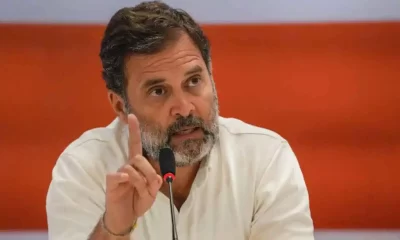
 2024 Lok Sabha Elections23 hours ago
2024 Lok Sabha Elections23 hours agoRahul Gandhi clarifies on wealth survey remark, says aim is to identify injustice
-
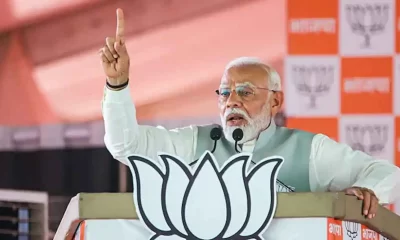
 2024 Lok Sabha Elections20 hours ago
2024 Lok Sabha Elections20 hours agoPM Narendra Modi slams Congress over Sam Pitroda’s inheritance tax remarks, accuses Congress of intending to impose higher taxes
-
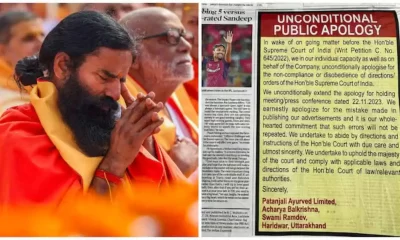
 India News22 hours ago
India News22 hours agoRamdev, Balkrishna publish bigger apology in newspapers after Supreme Court’s rap
-

 Entertainment18 hours ago
Entertainment18 hours agoMadhuri Dixit, Karisma Kapoor recreate Dil To Pagal Hai dance battle on Dance Deewane
-
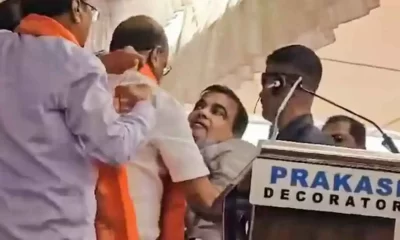
 2024 Lok Sabha Elections17 hours ago
2024 Lok Sabha Elections17 hours agoNitin Gadkari says he’s better now after collapsing at election rally in Maharashtra’s Yavatmal
-

 Trending21 hours ago
Trending21 hours agoA waiter’s life: Social media users go emotional on watching viral video
-

 India News22 mins ago
India News22 mins agoTamannaah Bhatia summoned in illegal IPL streaming app case, to appear before cyber cell on April 29

